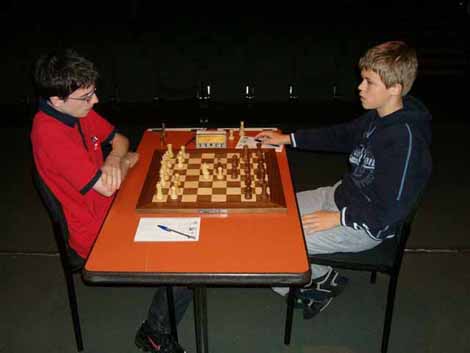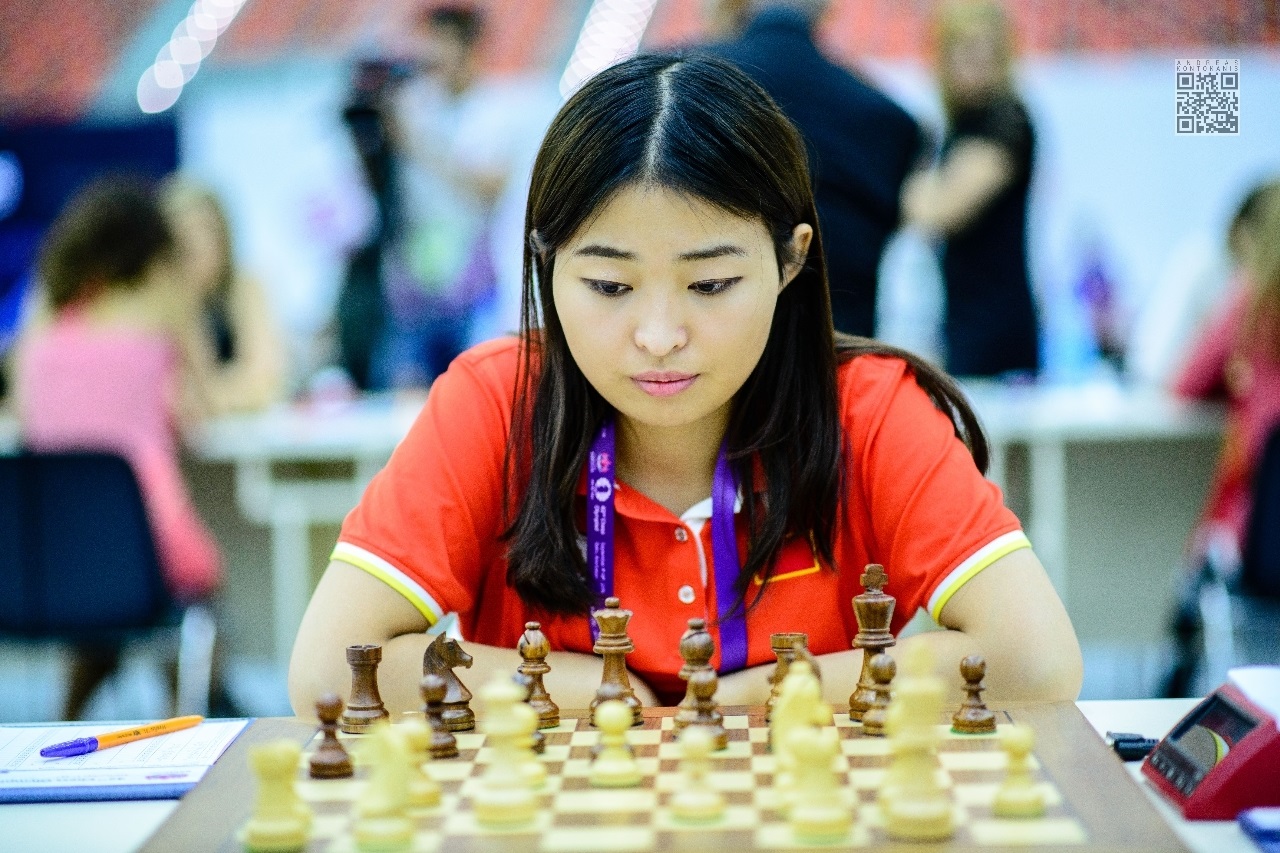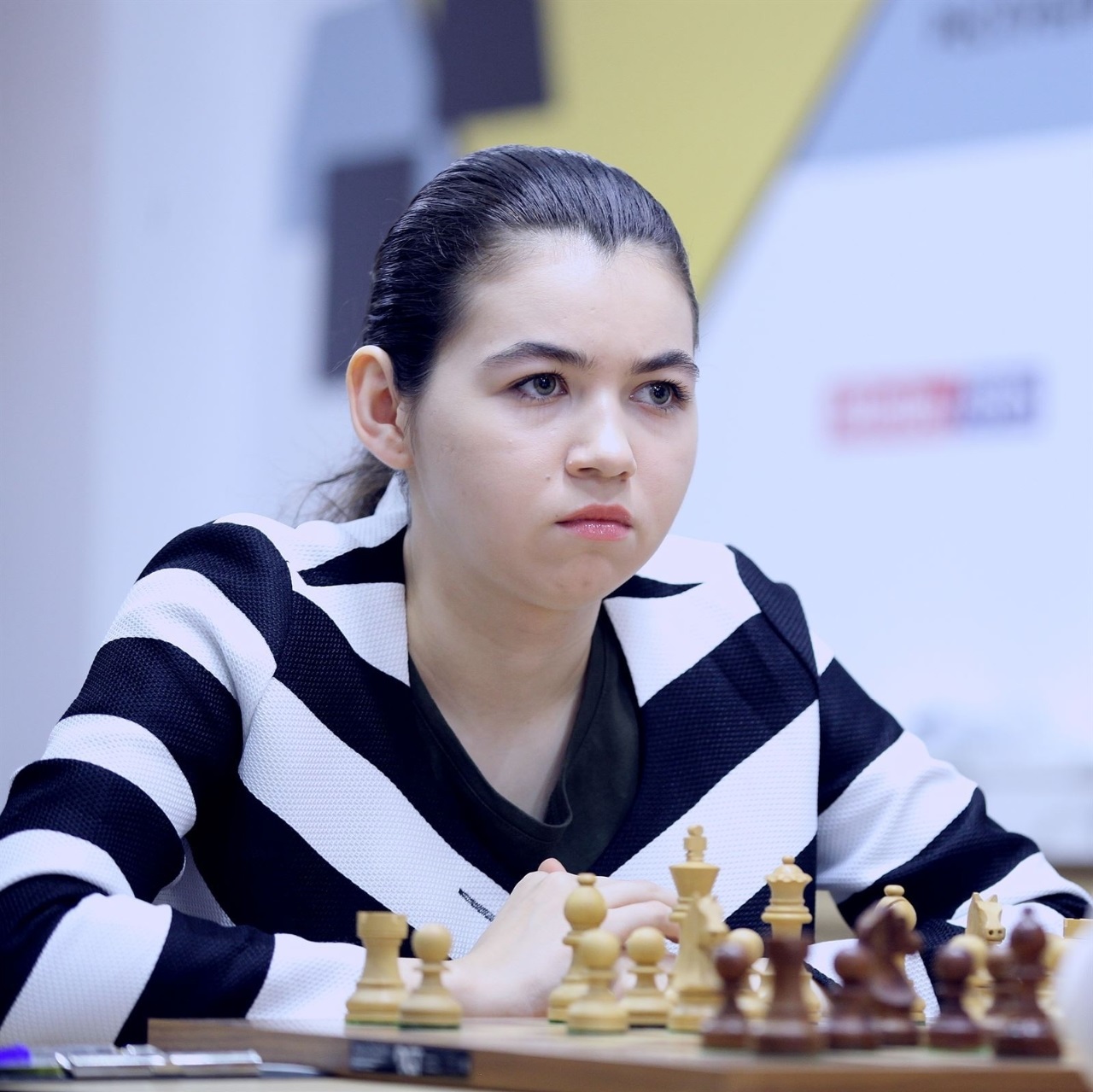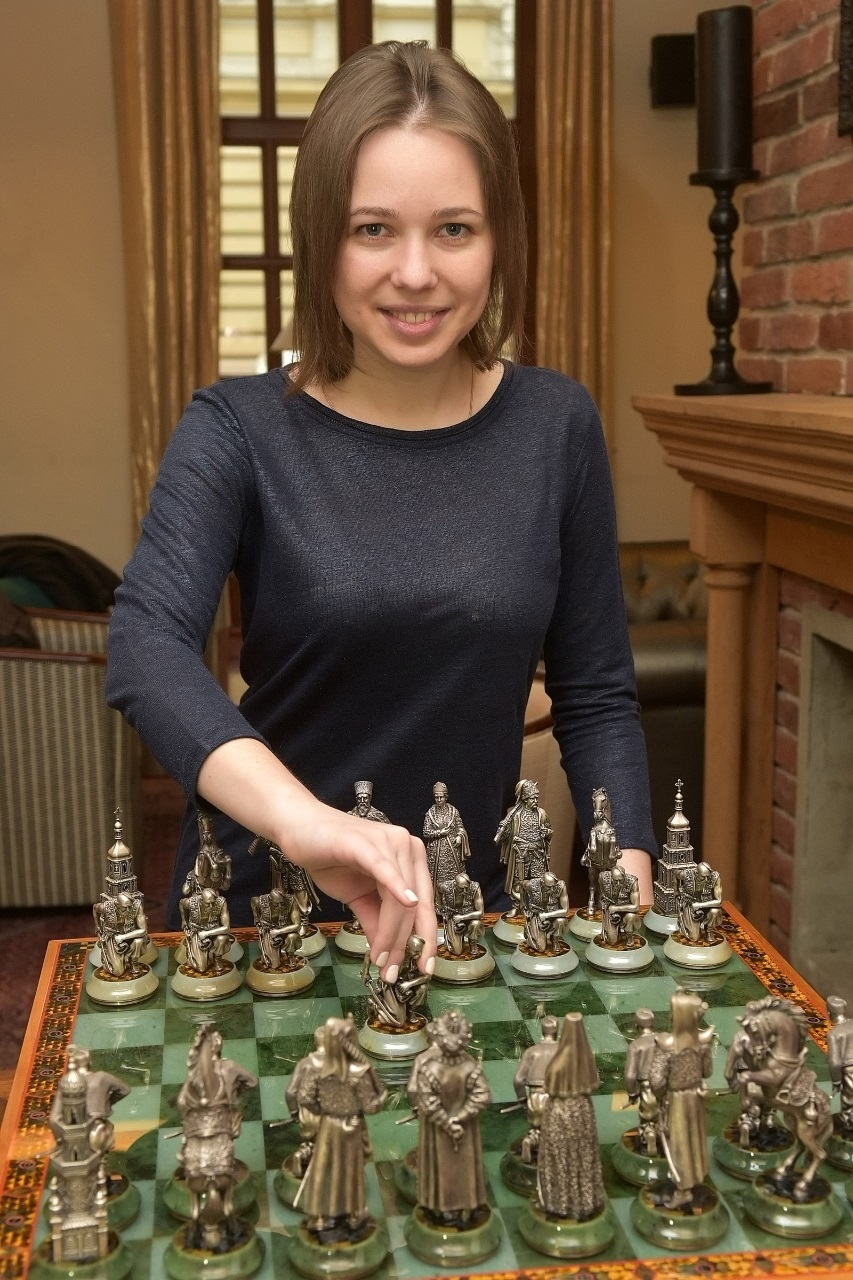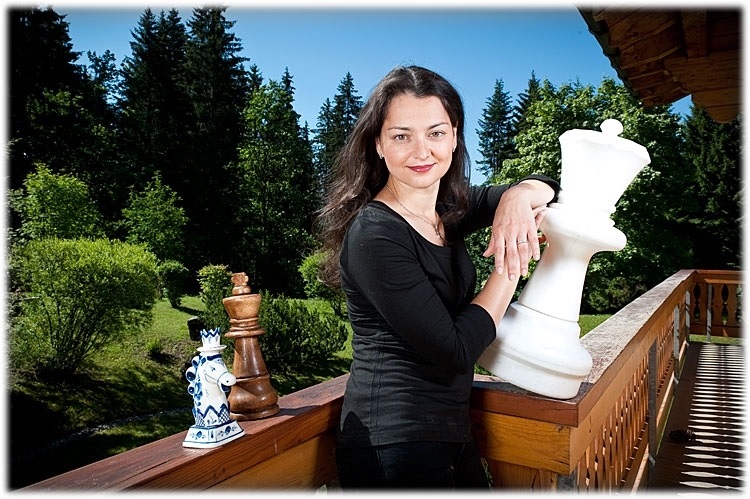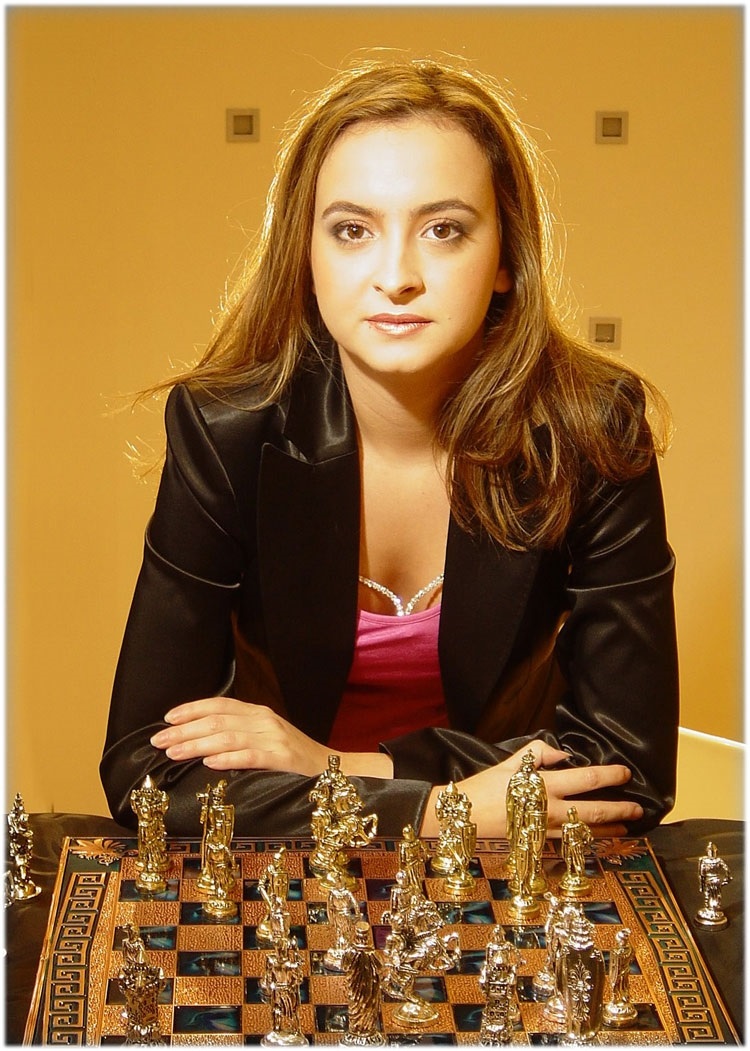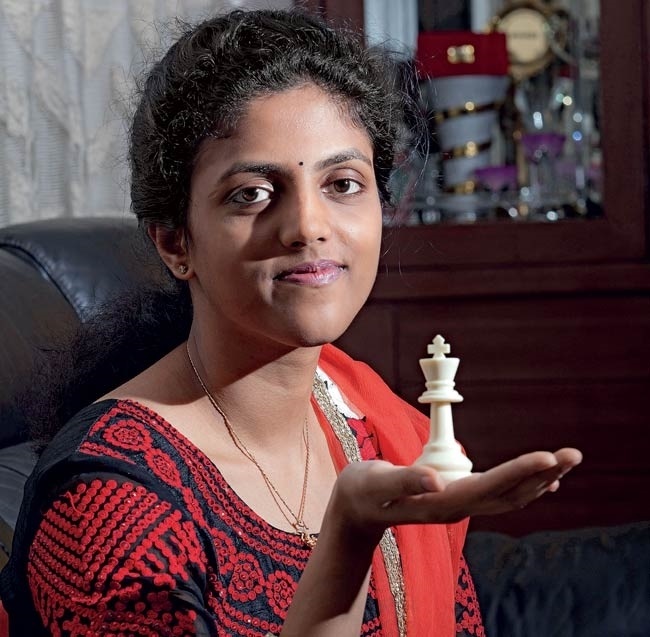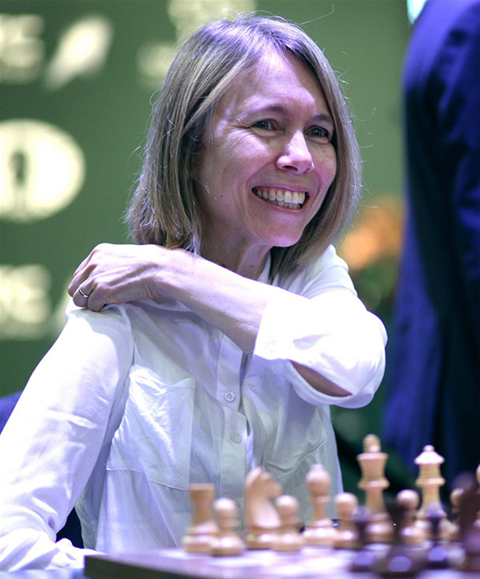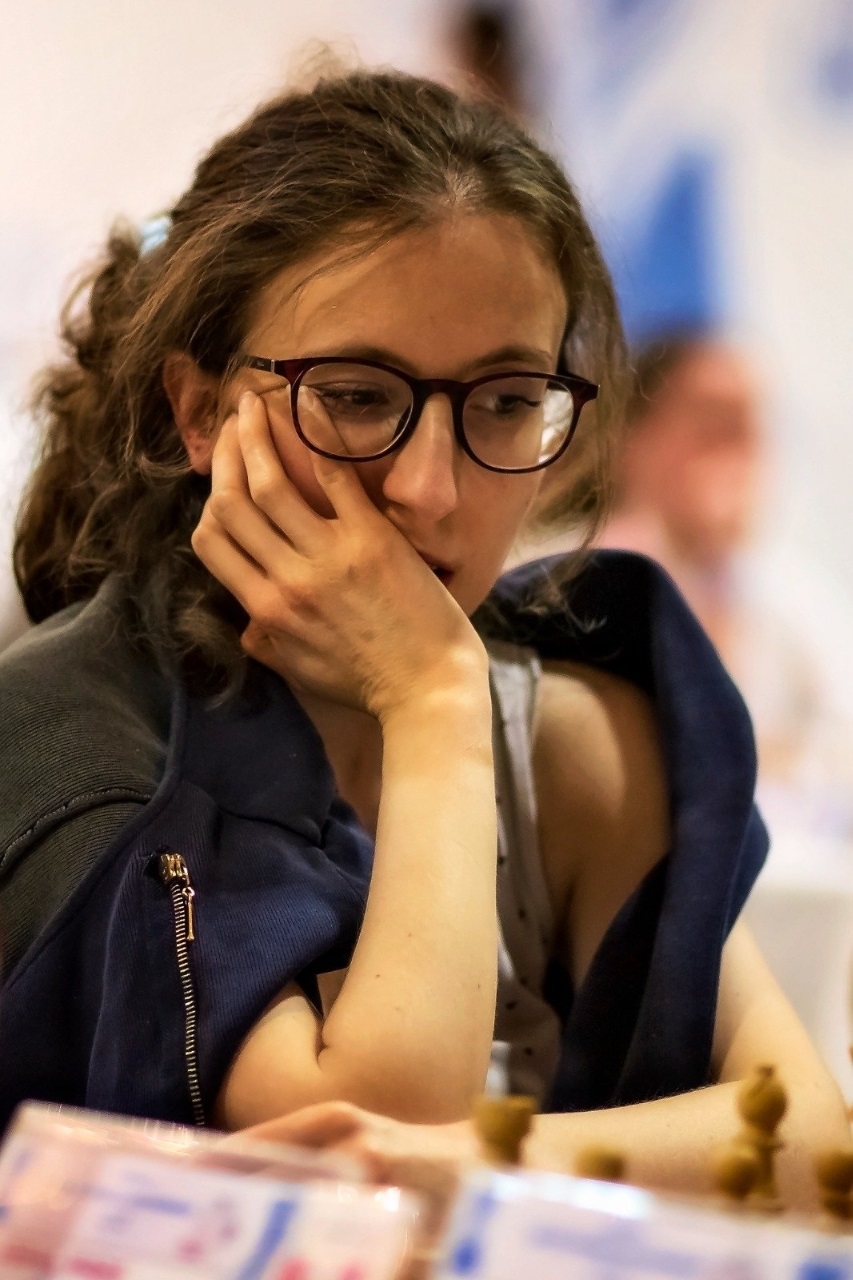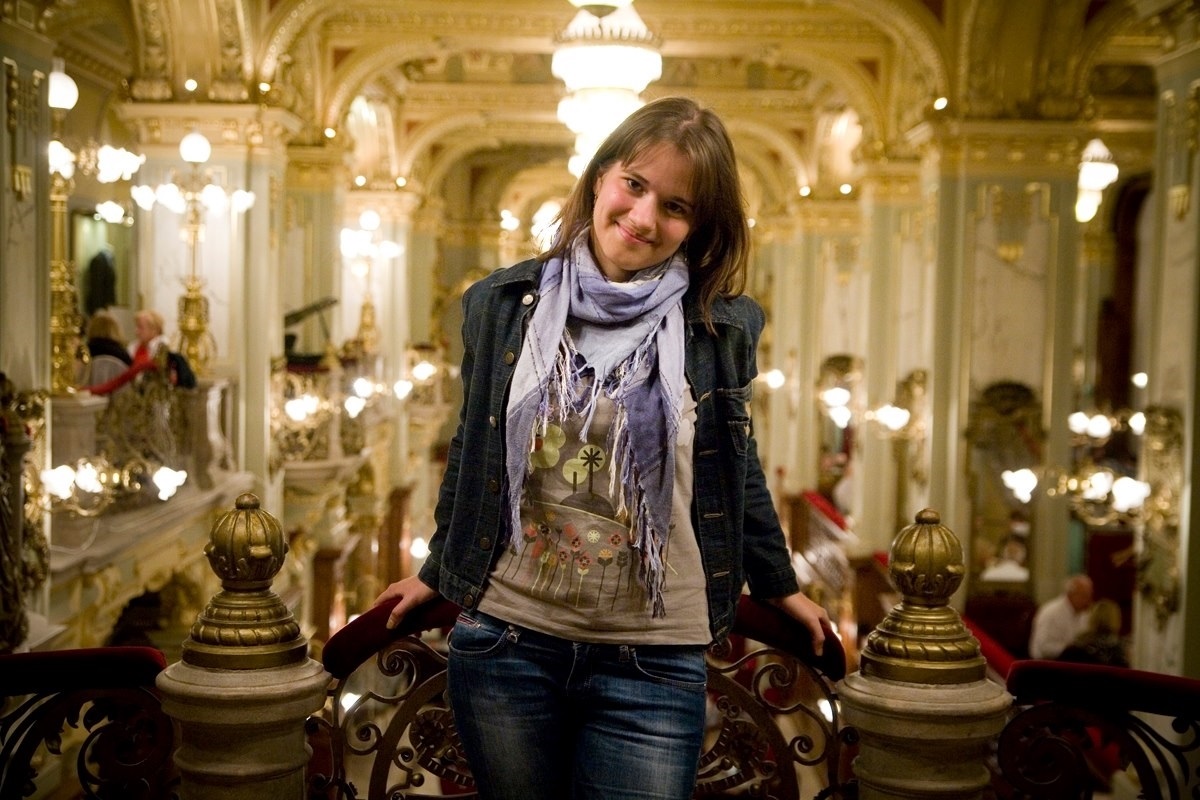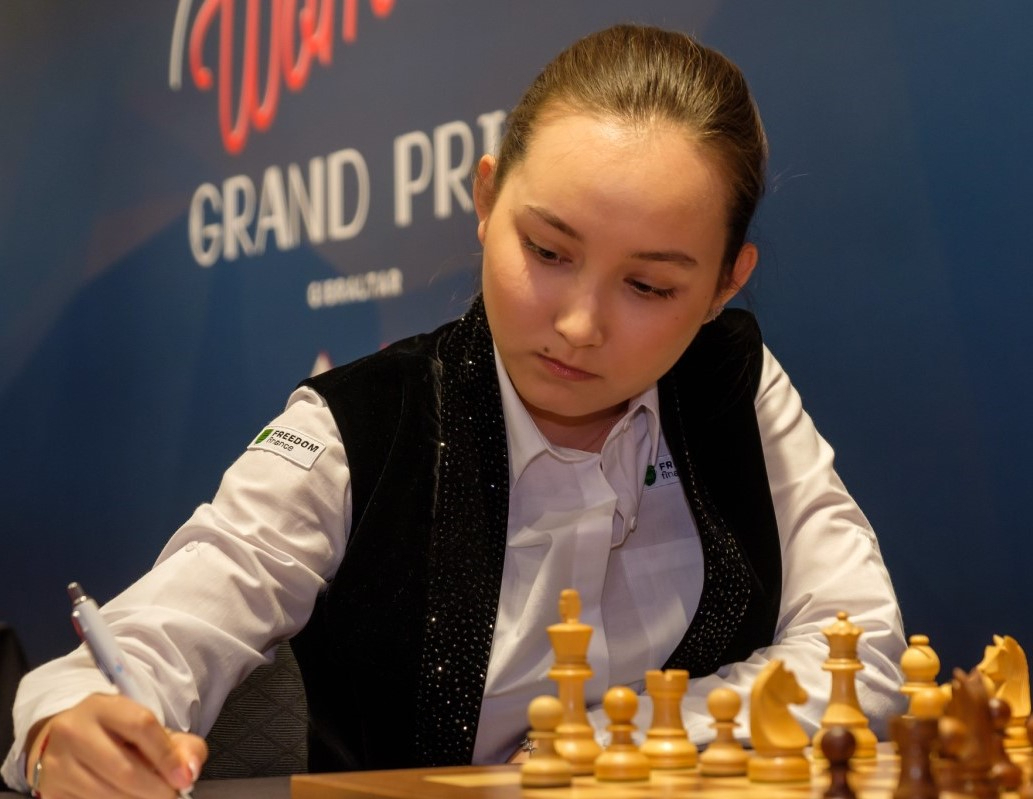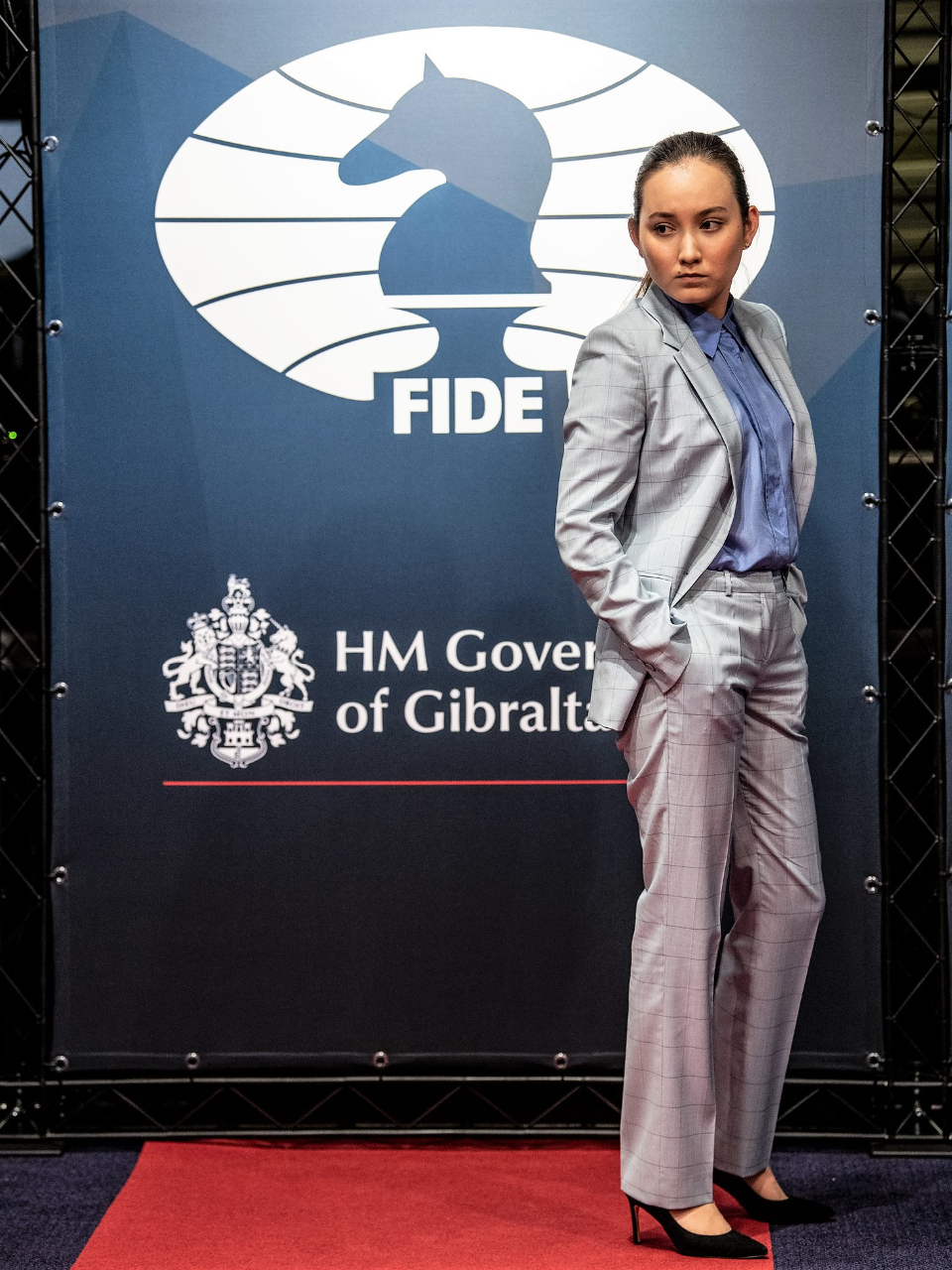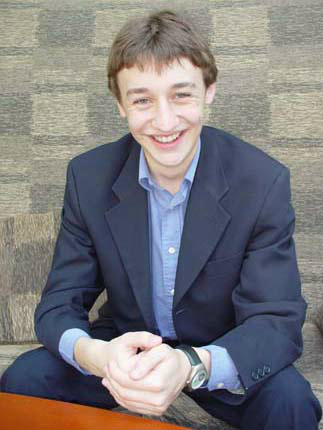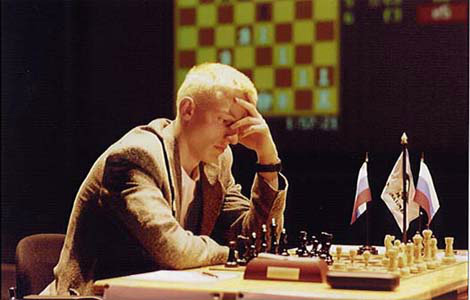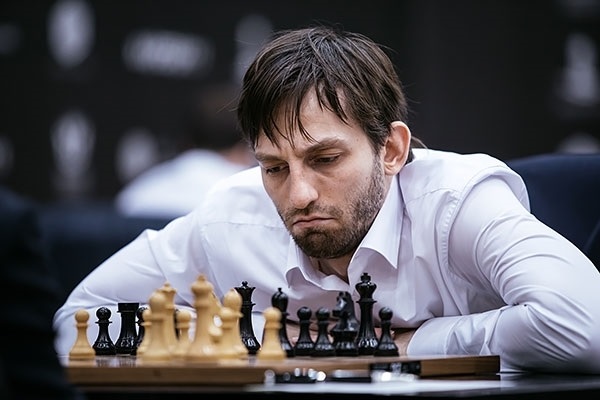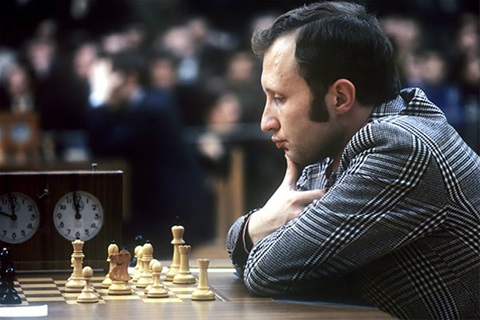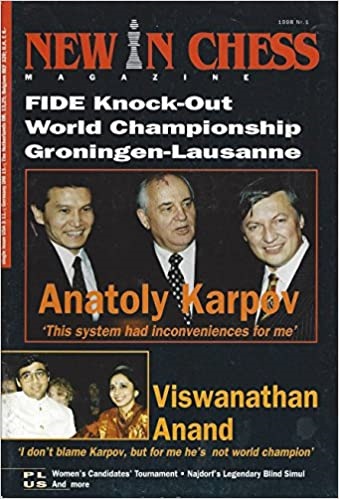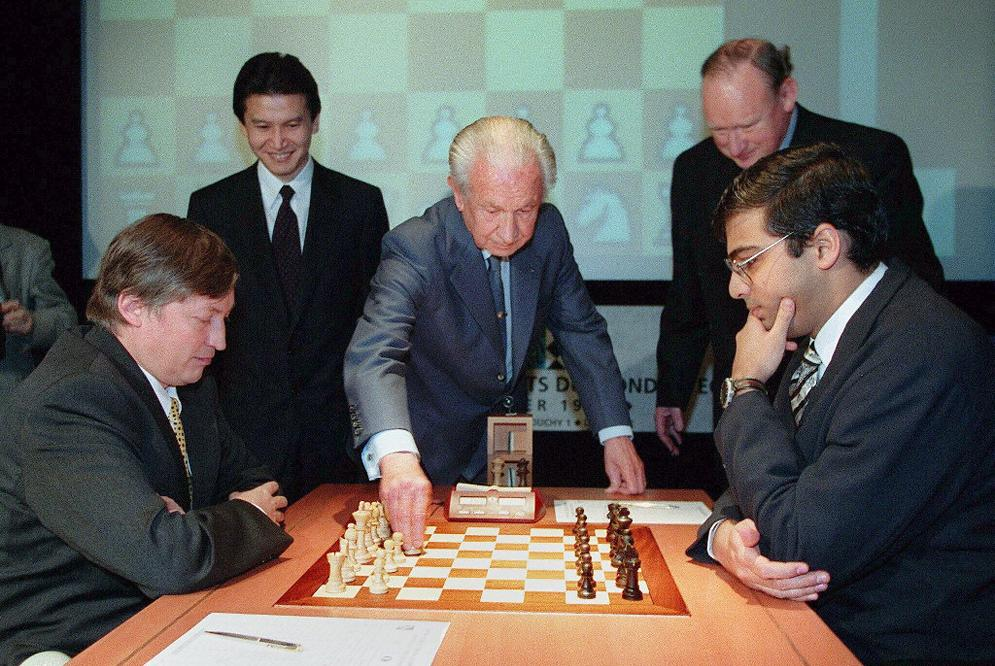LAUSANNE
Maxime vs. Magnus: Young Carlsen at Lausanne Youth Masters (LYM) 2005 in play against Vachier-Lagrave, both born in 1990. Carlsen won both of their games, Andrei Volokitin, born in 1986, won the tournament that year. Photo: Michel Puigard
Lausanne hosted the FIDE World Championship 1998 Final Match Karpov-Anand.
This summit in Lausanne had been followed by a prominent yearly Young Masters tournament from 1999 to 2006, plus an Open Chess Festival series, lasting from 1999 to 2013.
Magnus Carlsen played twice at the Lausanne Young Masters (LYM) tournament, held with 8 of the world's best under-20 player, among them also Aronian, Gashimov (R.I.P.), Grischuk, Nakamura, Ponomariov, and Vachier-Lagrave.
In 2020, Lausanne welcomed reigning Women's World Chess Champion Ju Wenjun in a FIDE Grand Prix (round robin), including also three former female World Champions.
Lausanne is the capital and biggest city of the canton of Vaud, official language is French (the citizens of Switzerland speak either French, Italian, or Swiss german by native; Romansh is recognized as a fourth national language, but rarely known). Today, most Swiss people do understand English as well.
The city of Lausanne is situated on the shores of Lake Geneva ("Lac Léman", the inhabitants dislike the name "Lake Geneva").
Reigning Women's World Champion playing in Lausanne
In 2019, the International Chess Federation (FIDE) has moved its Headquarters from Athens, Greece to Lausanne, Switzerland.
FIDE new Headquarters are located within the "Maison du Sport International". This building is home to about 30 international sports federations and 20 companies active in the field of sports. FIDE has a long history with Lausanne, a place that was home to the organization's offices already from 1995 until 2004.
A year after settling into Lausanne, FIDE staged one of its major events in the Olympic Capital.
The FIDE Women's Grand Prix 2019–20 is a series of four chess tournaments exclusively for women, which will determine two players to play in the Women's Candidates Chess Championship in the year 2021. The winner of the candidate's tournament will play a 12-game match against the world champion in the year 2021.
Venues of the ongoing FIDE Women's Grand Prix are Skolkovo (Russia), Monaco, Lausanne (Switzerland), and Sardinia (Italy).
Players receive 90 minutes for 40 moves, followed by 30 minutes to the end of the game, plus a 30-second increment starting from move one. No draw offers are allowed before move 30.
The prize fund is 80,000 euros in total, with 15,000 euros and 160 GP points for the winner.
In total, sixteen players compete in these four Woman GP (WGP) tournaments. Each of the sixteen players participate in three out of four WGP events. Thus, each WGP tournament is played with twelve players in a round robin (all-play-all of eleven rounds).
In each FIDE Woman Grand Prix tournament every player scores points according to her position in the final standings; the winner of the whole series is the player who earned the highest number of cumulative points in the corresponding contests she played.
The third GP tournament took place in Lausanne, Hotel Mövenpick, between March 1st and 13th 2020.
Ju Wenjun, since 2018 the reigning Women's World Chess Championne (she is female and male grandmaster), participated!
The further competitors were current Vice World Championne Aleksandra Goryachkina from Russia, former World Championne Antoaneta Stefanova from Bulgaria, former World Championne Alexandra Kosteniuk from Russia, former World Championne Mariya Muzychuk from Ukraine, her sister Anna Muzychuk from Ukraine, Nana Dagnidze from Georgia, Harika Dronavalli from India, legendary Pia Cramling from Sweden, Marie Sebag from France (these players are all awarded with the male (absolute) GM title by FIDE) as well as IM & WGM Alina Kashlinskaya from Poland, she is the reigning Women's European Chess Championne, and - as a last minute replacement of GM Zhao Xue from China, IM & WGM Zhansaya Abdumalik from Kazakhstan, as of March 2020, she is the top ranked U-20 woman in the world, she holds three male Grandmaster norms and only needs to achieve a rating of 2500 Elo to qualify for the GM title.
As of 2020, there are still less than 40 women to become an international Grandmaster in chess. Only two of them are born in a West European country: Cramling from Sweden and Sebag from France; both played at Lausannne.
FIDE is the International Chess Federation and governing body of worldwide chess competition; since 1950 there are male grandmaster titles awarded by FIDE, since 1976 also female grandmaster titles. These titles are based on so-called norms (earning a certain performance in international tournaments three times, and a minimum of Elo rating points), valid for life.
In other words: The Grandmaster title in chess is awarded to the players with an Elo peak rating above 2500 Elo points who had achieved the required three title norms (within a certain time).
The Elo rating / ranking system is a method for calculating the relative skill levels of players in zero-sum games such as chess.
Why in historical comparisons, ranking matters, not nominal rating: http://www.chessdiagonals.ch/431660786
How do you get the Grandmaster title in chess?
- start young, very young
- talent, dedication, hard work, ... especially hard work !!!
- score three FIDE norms in international chess tournaments
- achieve a 2500 Elo rating (2400 Elo for the women's gm)
- play and enjoy, don't expect to get a living
Note:
In January 2020, the Women's World Chess Championship title match had been contested by Ju Wenjun, the winner of the 2018 knock-out championship and her challenger, Aleksandra Goryachkina, the winner of a newly established Candidates Tournament, that was held in Kazan in 2019 (Goryachkina thus gained the right to challenge the Women's World Champion Ju Wenjun).
The title match took place in two parts, one held in Shanghai (China) and one in Vladivostok (Russia) in January 2020. The total prize fund for this event showed an impressive €500,000. Ju Wenjun retained her title.
That match between Ju Wenjun, born in 1991 in Shanghai, and Aleksandra Goryachkina, born in 1998 in Orsk (Southern Ural region, the city straddles the Ural River; since this river is considered a boundary between Europe and Asia, Orsk can be said to lie in two continents), marked the return to a match only format for the title with qualifying Candidates Tournament, after new FIDE president Arkady Dvorkovich expressed his dissatisfaction for the knock-out tournaments to decide the Women's World Champion and its frequent different winners in the past.
Official Website: https://wgp2019.fide.com/
Nana Dzagnidze and Aleksandra Goryachkina shared first place with 7 out of 11 points, while youngster Zhansaya Abdumalik finished third on 6½. Dzagnidze was declared the tournament champion on tie-breaks (total number of wins):
https://www.chessgames.com/perl/chess.pl?tid=98743 (full standings and all games)
FIDE GP in Lausanne 2020: The winner on tie-break is Nana Dzagnidze from Georgia (Photo from the 2nd Cairns Cup 2020, Flickr by Official Site)
Nana Dzagnidze, born in 1987, is awarded the title of Grandmaster by FIDE in 2008. Since then a regular female top-level player. Nana Dzagnidze was a member of the gold medal-winning Georgian team in the Women's Chess Olympiad in Dresden in 2008. Furthermore, at the Women's Chess Olympiad in Tromsø in 2014, Dzagnidze won the individual gold medal as the best player on board one, ahead of Hou Yifan.
The Grande Dame of Chess, Pia Cramling - just remember, she is born the same year and the same month as Garry Kasparov, and still playing chess on highest female level:
Pia Cramling, born in Stockholm, 23 April 1963.
Since the early 1980s, she has been one of the strongest female players in the world. She has been ranked clear No. 1 woman in the FIDE Elo list in January 1984, and joint No. 1 woman in July 1984.
In 1992, she became the third female to earn the FIDE GM title through conventional tournament play (fifth woman overall).
Cramling is married to the Spanish GM Juan Manuel Bellon Lopez. She lived in Spain for a number of years, but recently moved back to Sweden. They have a daughter, Anna Cramling Bellon, herself a promising chess player.
Welcome back in Switzerland!
It was in Switzerland, Zurich, SGZ Jubilee Open in 1984, where Pia Cramling met her future husband 🙂
It was in Switzerland again, Bern, SVB Open in 1992, where Pia Cramling made her final male gm norm 🙂
As of 2020, there are still only two women born in West Europe to achieve the male Grandmaster title in chess: Pia Cramling (in 1992, read above), and Marie Sebag (in 2008), at Lausanne FIDE GP in 2020 the then current European Individual Women's Vice-Champion from 2019, there was no edition in 2020 (Photo: Official Website of the Organiser of the European Women's Individual Chess Championship 2019, held in Antalya, Turkey, http://eiwcc2019)
Reigning European Women's Individual Champion, Alina Kashlinskaya from Russia, she is a Women GM (WGM) and a male International Master (IM), very close to become a male Grandmaster (GM) as well. Kashlinskaya is married to Radosław Wojtaszek from Poland, one of the best players of today, together they are one of the very strongest chess couple of the world right now (Photo: ChessRex.com)
Magnificient mountains are not only located in Switzerland :)
Zhansaya Abdumalik described herself this way:
I was born in Kazakhstan, in the city of Almaty. Kazakhstan is a large and beautiful country, which ranks ninth in the world in terms of territory – still I have met people who have never heard of it. I am Kazakh by nationality. The word "Kazakh" is translated from ancient Türkic as "free, independent person". In ancient times we were nomads, roaming the steppes of Kazakhstan. Perhaps that's why I love traveling.
Almaty is the largest city of Kazakhstan, surrounded by the majestic mountains of the Zailiyskiy Alatau. Love for the mountains is instilled in us since our childhood, when every day, waking up, you look out the window and admire their beauty.
In 2014, my parents and I founded the Chess Academy in Almaty. At the moment there are three branches of the Academy, where more than 700 children are studying chess (Photo: Almaty)
Abdumalik becomes Grandmaster
Abdumalik achieved the final requirement for the GM title in May 2021 at the FIDE Women's Grand Prix tournament in Gibraltar, where she crossed the 2500 Elo mark to secure her GM title.
Not only did she cross the 2500 Elo mark there, but did so with a splendid tournament victory!
The Kazakh chess player finished on a superb and undefeated 8.5/11 score at the FIDE Women's Grand Prix. Abdumalik won with a round to spare, and a final 1.5 points lead, earned 15,000 Euros, and became a full-fledged chess grandmaster in the process.
LAUSANNE Young Masters (LYM) 1999 – 2006
1999 Bacrot
2000 Grischuk
2001 Bruzon
2002 no tournaments
2003 McShane (5. Karjakin)
2004 McShane (5. Carlsen)
2005 Volokitin (5. Carlsen)
2006 Vachier-Lagrave
Further prominent young, promising players in the Lausanne Youth Masters (LYM):
Nakamura, Mamedyarov, Gashimov (RI.P.), Aronian, Asrian (R.I.P.), Navara, Ponomariov, Kasimdzhanov, Naiditsch, Wojtaszek, Fressinet, Alekseev, Predojevic, Ghaem Maghami, Leitão, Harikrishna, Sasikiran, Wang Yue, Bu Xiangzhi, amongst others,
and Alexandra Kosteniuk, Humpy Koneru, Kateryna Lahno, Elisabeth Pähtz, Tatiana Kosintseva, Nana Dzagnidze, Zhao Xue,
plus from the hosting nation Switzerland: Yannick Pelletier, Florian Jenni, Severin Papa
«Maîtres vs Éspoirs» (closed international tournament)
2003 IM (GM in 2005) Alexander Raetsky
2004 GM Vladimir Tukmakov (on tie-break),
GM Cyril Marcelin from France, born in 1979
2005 GM Vladimir Tukmakov
2006 GM Vladimir Tukmakov
«Maîtres vs Éspoirs», ten players in a round robin tournament, was a side event at LYM
Lausanne Open Festivals 1999 – 2013
1999 Mark Hebden, 89 players (first edition)
2000 Mladen Palac, 87 players
2001 Petar Genov (on tie-break, then IM, leaving behind > 20 GMs), 114 players
2002 no tournaments
2003 Vladislav Borovikov (on tie-break), 133 players
2004 Vladimir Lazarev (on tie-break), 130 players
2005 Namig Guliyev (on tie-break), 140 players
2006 Daniel Fridman, 128 players
2007 WIM (later WGM) Pauline Guichard, France,
clear first ahead of GMs like Gheorghiu
or Gallagher, 87 players
2008 Alexandre Dgebuadze (on tie-break), 95 players
2009 Sebastian Siebrecht, 84 players
2010 Alexandre Dgebuadze (on tie-break), 96 players
2011 Christian Bauer, 97 players
2012 Tigran Gharamian (on tie-break), 89 players
2013 Andrei Istratescu, 90 players (last edition)
Lausanne 1998: A peculiar match
In January 1998, Viswanathan Anand and Anatoly Karpov battled their match for the FIDE World Chess Championship in Lausanne — under rather peculiar circumstances:
Anand had qualified for the match by winning the big knock-out tournament in Groningen in the end of December 1997 but then had to go immediately to Lausanne to play for the title — without a break or time for preparation.
Karpov was seeded directly into that match, without any qualification stages.
Kasparov, PCA World Champion, was absent. Kramnik, then number two in world, too, boycotted the World Championship in Groningen because he did not agree with the privileges given to Karpov. Anand, then no. 3 of the world, thus was the highest rated player in Groningen, and he won.
The FIDE World Chess Championship Match started just three days (!) after Anand's last game in Groningen.
The venue of the title match in the beginning of January 1998 was the Olympic Museum in Lausanne, located directly at Lake Geneva (Lac Léman).
Landlord of the beautiful building was Juan Antonio Samaranch, at that time President of the International Olympic Committee. He visited the match every day and followed the games.
FIDE and its president Kirsan Ilyumshinov tried to make Chess an Olympic discipline. Alas, since then there has not been any progress in this direction..
Retrospective report by
Dagobert Kohlmeyer in ChessBase:
https://en.chessbase.com/post/20-years-ago-anand-vs-karpov
IOC President Samaranch opens the game between Karpov and Anand, closely watched by young Kirsan Ilyumzhinov, President of the Republic of Kalmykia in the Russian Federation, in office from 1993 to 2010, and President of FIDE, the international governing body for the game of chess, in office from 1995 to 2018, and Geurt Gijssen, Chief Arbiter. Photo: El Pais
Juan Antonio Samaranch y Torelló, 1st Marquess of Samaranch (17 July 1920 – 21 April 2010) was a Spanish sports administrator and minister of sports under the Franco regime. Born in Barcelona in a wealthy Catalan family, member of the fascist Falange in Francoist Spain, he was appointed President of the provincial council of Barcelona in 1973. Four years later, in 1977, he was appointed Spanish Ambassador to the Soviet Union and Mongolia. IOC member since 1966, he served as the seventh President of the International Olympic Committee (IOC) from 1980 to 2001. That year, in 2001, his son, Juan Antonio Junior, has been elected as a member of the International Olympic Committee (IOC), too.
LAUSANNE YOUNG MASTERS survey
(survey in english / french)
